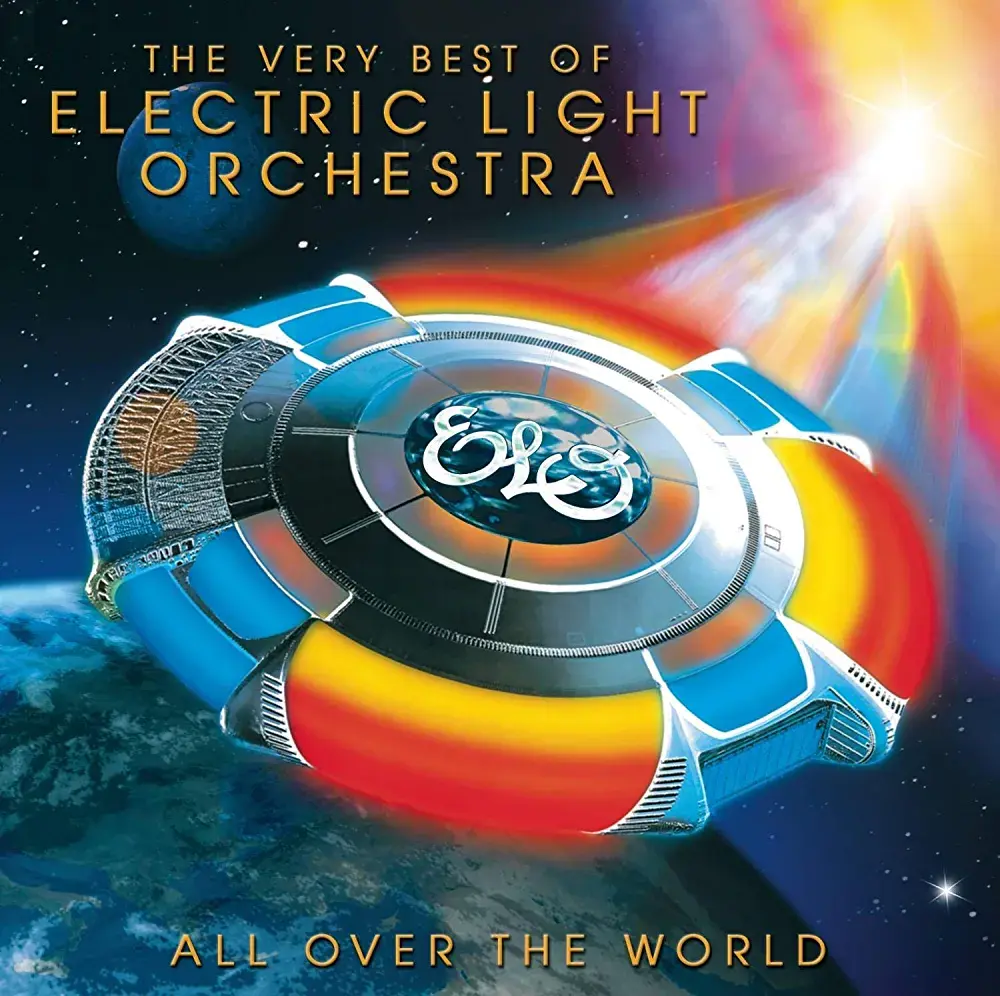I often hear, “You should never cheap out on a good office chair, shoes, underpants, backpack etc…” but what are some items that you would feel OK to cheap out on?
This can by anything from items such as: expensive clothing brands to general groceries.
All your basic staples: salt, flour, oil, sugar, pasta, pasta, milk, eggs etc. There’s literally nothing to do better or worse, so for god’s sake don’t pay for the label. Fancy olive oil is nicer, and fancy butter for actually putting on bread is nice too - but for cooking, cheap the hell out.
Get your spices from an Indian / Asian / etc grocer - you can get a huge bag for the price of a tiny supermarket jar, and because they have so much turnover, they’ll be plenty fresh.
Store-brand laundry detergent and dishwasher tablets work just fine for me (and dear god you can save a lot on those).
All your basic staples: salt, flour, oil, sugar, pasta, pasta, milk, eggs
It depends. Cheap salt is just fine. And flour, unless you’re into baking. But some things can make a difference and you don’t necessarily have to pay a lot more for it.
Pasta, for example. Bronze cut pasta absorbs sauce a lot better than “normal” pasta. It looks dull, rough, and pale as opposed to shiny and smooth. It usually only costs a buck or two more. I find it’s a big step up taste and texture-wise.
Or butter. The ones without natural flavor taste better. Sometimes it’s the store brand that doesn’t have added flavor.
And eggs. Orange yolks are way better than the pale yellow ones. But those you do have to shell out for.
Wait wait wait. Your butter has flavouring added? Like, I realise I’m spoiled here in Ireland, but fuck mei can’t even picture what that might be
That was my exact reaction! But butter is literally nothing but churned cream and possibly salt added? If there’s anything else added, such as water or any kinds of oils, it’s no longer butter. I get more scared every time I learn something new about US food culture…
Gotta check the ingredients on damn near everything here, or just make everything yourself :P.
Homemade unwashed butter = best butter (although spoils very quickly when not washing, like a day or two). I would eat that shit by itself if it wasn’t so unhealthy lmao
Irish butter is sold in a lot of grocery stores at least around me in the U.S. and my God it’s night and day compared to our shit sicks of fuck
diacetyl is typically used as butter aroma
Eggs I always buy free-range because yeah it makes a difference to taste (and is so much kinder to the chickens), but in the UK butter is butter. I know in the US you have butter that’s practically white but here’s it’s all yellow and tasty. Flour every brand has plain, self raising and bread flour and those categories are pretty similar across brands.
Milk, the filtered stuff (Cravendale or similar) is nicer but not much nicer so it’s not worth the upgrade IMO
Just to reply to “it’s so much kinder to the chickens”, I hate to break it to you but “free range eggs” is a scam. Here’s a (very opinionated) article: https://www.theguardian.com/commentisfree/2017/jan/30/free-range-eggs-con-ethical
“Free range eggs” at the grocery store is a scam.
“FREE RANGE EGGS” on a sign by the side of the road are the best eggs you’ll find
TBF he said kinder, not kind. I don’t buy eggs myself except for occasionally from rescue hens, but if I was I’d feel a lot better knowing they saw daylight occasionally.
I still pick those, even though I know it’s a scam. When you have 9 chicken per square meter though, not sure they often find their way outside.
When I did buy eggs I bought woodland eggs with a story on the side. Also a scam, but like, slightly better… kinda?
Like even in the ads you can see they’re packed in, but I bet there’s some bugs to eat there, and they can scratch dirt.
I dunno, commercialising animals is just all a bit grim really.
Oh I know it’s not great, but I don’t pretend to be vegan. It is definitely better than battery though
To be clear, it is kinder. Not much, but it absolutely is kinder. Pasture raised is what free range should have meant… But fortunately we have a word for it now.
Oh yeah, the yellow European style butter was a revelation when I found out about it. It tastes way better and is less watery than the pale American butter.
I never heard of filtered milk. Milk is milk for the most part, but once I made the mistake of buying it on clearance. Grabbed it without looking because the price for a normal gallon freaked me out. It wasn’t spoiled, but it was super watery and had a weird color.
For bronze cut pasta, De Cecco is the brand to look for
This has been my favorite dried pasta! I used to get it off Amazon before my grocery store carried it, and I can still get more shares online. I like three orrichetti and radiatorre(sp?)!
Agreed. The store brand pasta at my store sucks. It’s sticky and falls apart. It used to be fine but something changed recently.
Eggs isn’t true. The only thing you’re buying is for sound of mind for ethically raised chickens and the orange color of the yolk specifically for things where you need that nice orange color.
Nutrients aren’t statistically significant. Taste has no difference. Especially if you aren’t eating them plain.
Chicken wrangler here. This may be true of supermarket eggs but should not be taken to imply that all eggs are the same.
Perhaps there isn’t a huge difference between the different labels available at the supermarket.
However, I’m incredulous that there is no difference between an egg laid by a backyard chicken who is well cared for and has a varied nutritious diet, and that which you’ll find at the supermarket.
I realise you (and youtube guy) are not talking about backyard eggs, but just because “pastured eggs” are not significantly different to cage eggs, that does not mean that it’s not possible to buy proper eggs.
Here is an alternative Piped link(s):
https://m.piped.video/watch?v=0YY7K7Xa5rE&start=930
Piped is a privacy-respecting open-source alternative frontend to YouTube.
I’m open-source; check me out at GitHub.
Agree no difference as an ingredient in some baked dish.
But if you are eating the egg by itself or as the primary item, there is definitely a difference in taste. Not a revolutionary change your life difference, but still a difference.
In my experience the difference is pretty small amongst the options in the grocery store, but fairly noticable for eggs I get from the farmers market.
Flour - disagree. King Arthur for baking vs your basic supermarket crap is a tangible taste and texture difference in baking. While you’re at it, get a mill and buy organic wheat berries and save money for higher quality l, more nutritious flour. It’s literally cheaper to get better quality if you are willing to mill it.
Butter- Same for butter if you’re using butter as a spread. It’s ok to use cheap stuff in cooking but if it’s the main complementary flavor, like butter on toast, treat yo self to some Kerry Gold.
You’re absolutely wrong about flour. There’s a huge difference in flours (besides the cursory fact that most wheat undergoes a process called desiccation which is literally spraying it with roundup).
I’ll take my glyphosate-free wheat and corn and I won’t be cheaping out thank you very much, Toxic Avenger.
You are also missing the FACT that the other essentials you name are also badly polluted with chemicals that medical science has yet to understand.
Be careful with cheap spices, some of them (like turmeric) can be laced with lead and other nasty stuff to make them more attractive.
How does lead make them more attractive? The weight?
It makes them sexy. Stupid, sexy lead-additives.
Color.
Removed by mod
Nestlé
Say no more you have aldready conviced me.
I buy them exclusively so I slowly become leader.
I’d hope this isn’t a concern in any country with even a small account of regulation on what you’re allowed to sell or on whether you’re allowed to murder people
Well, most of these spices are imported (in western countries), and it’s hard to tell how often they’re tested. There are some tests you can do at home (for example, turmeric should apparently not dissolve in water, so if you drop a spoonful in a glass and look at it after 20min, the water should still be relatively clear, or it means there are other additives).
Removed by mod
Uhh, yes they do. This does not take much googling to find out. Capitalist companies produce spices in the east too.
Removed by mod
I’d even suggest buying laundry detergent in bulk online.
Agree on spices, bulk and into the freezer. Cheap spices aren’t just as good, they are better.
I used to agree on flour, got good bread flour but recently husband brought me store brand unbleached white flour and it near killed my sourdough starter, so my mind is changed on that - I’d still use it for cake, but cheap flour is low protein and won’t work for everything.
Disagree on pasta too, good pasta is easier to cook, doesn’t turn to mush as easily.
Bread, cake, and all purpose flours are different. It’s not just cheap, they are almost different products.
Yes. I’d always used whatever brand all purpose unbleached flour for the starter and figured it didn’t matter. So I always asked for “Gold Medal Bread Flour and whatever brand all purpose unbleached flour”. But the Publix brand all purpose unbleached wrecked my starter. It took almost the whole bag before I figured out it was the flour, because I didn’t realize they varied.
It’s actually quite good for pancakes. Maybe it’s good for biscuits, that would actually make sense. But it’s no good for bread; but Gold Medal or King Arthur unbleached all purpose work fine.
https://watch.foodnetwork.com/video/good-eats-food-network/the-dough-also-rises
It gives a good overview of the types, what makes them different, and what they are good for and how they change what you’re baking.
I always buy the cheapest pasta available and they’ve always been good. Just last week, the store brand (Complements) was cheapest for the first time I’ve seen, and it was also my first time experiencing bad pasta. I don’t know what they did differently, but there’s clearly a way to mess it up.
Great advice for the most part but I very much disagree on dishwasher detergent. Nothing works as well as finish pods for us. Could be our dishwasher of course but all the cheap brands leave our dishes dirty.
Same thing. I was considering buying a new dishwasher, until we switched to a good brand. I think cheap dishwasher detergent used to be ok until they removed phosphates around 2010.
Phosphates were the secret behind all good cleaners for sure.
Smartphones. Most people don’t need to buy the latest and greatest iPhone every year.
Going to respectfully disagree here. Outside of my glasses, my phone is the tool I use most often, many times daily. It’s worth getting a quality device, and if there’s an issue with the current one (battery, cracked screen etc) it’s worth replacing. But you’re right, it doesn’t need replacing just for the sake of newness.
Gonna respectfully disagree back at you. You don’t have to get a $100 crapsung, but most people whose work depends on a good phone still don’t need a $2000 top of the line phone.
An iPhone SE or Pixel ?a phone is more than sufficient for almost anyone anything more I’m probably going to call opulence.
Well the prompt was what are things you should cheap out on. I have a pixel 6, I think it was $600 or something like that? But to me cheaping out on a phone would be like a $100 device.
Because of how often I use it, it’s worth it to me to not have bloatware, to have a good camera, for the battery to last, resistant to water, etc.
Pixel 7a is currently $500 new, so good mid tier device. https://store.google.com/us/product/pixel_7a
But really what you should do is get a used mid or top tier phone that’s one or two generations behind. Depreciation on phones is so great that you get a lot of bang for your buck.
For example mint condition Pixel 7 is $300
Think outside the box. Get a previous generation. Pixel 8 was about to be released. To move inventory, Google discounted the 7 series by like 30-40%. I got the 256GB 7 Pro for $600. Without the sale, $600 is the same price as the 128GB 7. I got a top of the range flagship phone for the cost of a midrange. My mom did something similar with a Samsung phone. She got an S20 when the S22 released. Huge discount when Verizon offered it for $449.
I second this, especially with Android you can breath new life into a phone by installing a custom ROM
Damn right. I bought myself a redmi note 12 last year and now I am back to using my 5 year old OnePlus 6 with lineage OS as it just runs better somehow.
You should try replacing LineageOS with DivestOS, it’s a much more secure build of Los.
Also, the oneplus 6 is such a great phone
What if my phone isn’t supported by any ROMs? Is there an easier alternative to building it for your device on your own, following the given instructions, for example?
Sadly the best bet is to only buy devices that you know have good custom ROM support
I’m in that situation right now with my OnePlus N10, the plan is to buy a second hand device that is supported by LineageOS
breath new life into a phone by installing a custom ROM
Smh Nope, you don’t want to go down this ROM hole!
Why?
Because they doesn’t know what their talking about.
I’m on my phone 8 hours a day. Quality counts. Slow is bad. Lacking features is bad. Crappy cameras are bad. Get a good phone. Use it until one of the following happens:
- It no longer gets security updates
- There is a new built-in hardware feature that will actually improve the quality of your life because you’ve been wanting it forever
- You break it or the battery performance starts to suck too much.
I’m on my phone 8 hours a day.
That is generally not good and shouldn’t be common. I’d argue folks should consider whether a nice phone will lead to overuse, and if so, buying a cheaper phone.
Before I had a phone I was on a computer for all that time. And before that I was reading in bed for all that time. And before that I was watching TV for all of that time. This is so much healthier than anything else I’ve done in 5 decades.
Just to be clear, I wasn’t trying to be critical of you. I know some people can’t actually reduce their screen time due to their job or way of life. I’m curious though, could you elaborate on what you mean by this being healthier for you?
I used to sit, or lay, for all those hours. Now I’m up moving around. Talking to my geese, trimming trees, painting rooms, figuring out what some idiot electrician did 60 years ago that’s causing me a problem today (stupid loopbacks and hot neutrals, aluminum wiring optional), going someplace to hike and get the physical therapy I need after breaking my back falling off a ladder, etc. Living life while managing my ADHD and still consuming massive info dumps while also having one of the 200 podcasts I listen to play in my ear at 2.5x speed.
For me it’s just the last one that counts.
Just for my personal understanding. How often have you heard about security issues from missing updates in older phones? In real life, I mean, not in some blog or video? I’m having a hard time finding any information about real cases. There are hundreds of articles from tech-sites and security companies.
To me it feels like selling pick-proof locks, a market without actual use-cases. You can pick them all anyway, but nobody actually does it.
I used to do phone security for a living. I’ve seen a handful of cases in person. The bigger issue is that most of the time you don’t know it was the phone that caused your problems. One day your bank is drained and you don’t know why.
There have been several zero days that gave anyone that wanted to the ability to own your phone with a text that you never even saw because the phone doesn’t show you command texts.
Unlike the good ol’ malwares that let you know that you’re infected by deleting your files or messing up your system, modern malware authors are profit-oriented and will do everything they can to make you unaware that your devices are infected. Then they’ll exfiltrate your data and sell them on various underground marketplace such as this one.
Definitely. If you know your device is infected then someone drastically messed up. The new stuff isn’t like the old stuff.
Don’t tell people that!
I always get a refurbished phone which are last years model that someone traded in when they got the newest and greatest thing. If people stopped doing this I might have to actually shell out for a new phone!
It is the one device most people use literally all day everyday. Having a great one is worth the money. But it does not need replaced every year. Mine is 4 years old and still works like new (one battery replacement). I will likely replace it next year.
I usually try to stay about 3–5 years behind whatever the newest one is. It’s good enough for what I need and helluvalot cheaper than current phone prices.
Another way to do that is one year old manufacturer refurbished phones. I generally spend $250-$300 for a year old phone that will last me 4-5 years
Lemmy hates Apple, but my five year old iPhone XS Max is still beastly fast, and I have like 40k pictures and all of my texts back nine years on it.
Better make a backup of those pics sooner than later
The beauty of iTunes (and the ONLY good thing about iTunes) is that I can make an encrypted incremental backup image of exactly what’s on my phone with one click.
Those pics have always been backed up.
The oldest pics are from my previous iPhone, so maybe eight years ago?
When I get a new phone (maybe soon, now that USB-C) I just plug into my computer and now my new phone is the same exact phone and layout as this phone, with all pictures and texts and files and everything.
There’s a reason my phone has no trouble with the Roku, works immediately when I use microHDMI, and gets updates for games on time and my roommate’s does not. Hardly a day passes where I’m not convinced he’s relegated to a worse quality of life because his phone just isn’t allowed to do things right. His phone doesn’t even run the transit app properly.
Now I’m not saying but a new phone every year for the incremental improvement, but don’t get something from a crap factory pushing high volume for small margins. Get something good.
What phones would you consider worthwhile in terms of price, i.e. those you can cheap out on, but not suffer the consequences of it being slow even in the simplest tasks?
One Android phone I had, Nokia 5.1, had to be replaced in less than 5 years because it often froze and lagged when I had to make or receive a phone call, open a single tab in some light-weight browser, etc.
I’m not a big fan of the smartphone industry and especially the reviewers because they seem to have a very twisted idea of a budget device. Or maybe I’m a cheapskate.
To combat this generally, you can buy one with more RAM. Also, right now there is a bit of a “race to the top” for longest phone support with Google announcing 7 years of support in November. Repairability is coming around too, which is great for replacing old batteries and broken charging ports.
I’ve adopted a policy of buying the latest iPhone every 5 years, which is about how long they tend to last in my experience. So far it’s worked out well.
Yes and no. For apple you can use their phones for quite a long time securely. For Android that is a very different story. As far as I know only Google with their new pixel phones and Samsung have offered more than 2 years of updates. After that time your phone becomes a security risk. So make sure your devices receives updates or can be used with a custom ROM (though that can be insecure as well).
It’s 2 years of FEATURE updates, usually longer for security.
Sometimes. It depends on the manufacturer. Some do more some don’t promise anything. You have to know what you have. Also the support time starts usually at the start of sale not at the time of purchase. That means if you buy a new phone that was released a year ago on clearance or something you might have only half the time.
deleted by creator
There have been a few bugs in the past years that let you take over a phone without user interaction. There was one where you only need to receive an SMS (it was invisible even) and your phone is infected. Another one was a vulnerability in wifi calling and voice over lte.
A phone is not a passive device that only gets something when you request it. You take also it with you to public places, use it in open wifi networks and you get calls. All that while being used for security critical stuff like 2FA, banking and payment.
You shouldn’t use a phone without current security updates for much more than calling. It is a time bomb. If you want to educate yourself further you should look at “zero click vulnerabilities”.
And if you happen to be in Vegas during Def con you should probably just turn off your phone and leave it in the room.
yeah, are y’all just rawdogging the Internet? i like Blokada (the free one) + Hypatia for my adblocker/antivirus combo, and it works just fine. i practice good Internet “hygiene” and have never had a problem. idk how all that works with Apple stuff, though.
Your phone is rawdogging all it’s connections. It can receive SMS and Phone calls without your intervention. There have been several zero-click bugs in the past that allowed injecting malicious code into your phone without any interaction.
Generic meds vs brand meds.
Brands pay a lot for branding, and thus charge more. The formulas are moderated and regulated by the FDA, so unless you enjoy paying for ads, get the generic.
This isn’t always true. The content has to be the same, but the delivery mechanism can be different in generics as long as testing shows similar results
Generic concerta for example, often sucks
Unfortunately, generics can vary wildly in efficacy & quality. As @Aradina pointed out, sometimes the encapsulation is different (e.g. extended release coating vs. standard release), but also the form of the drug can differ (e.g. capsule, tablet, softgel, chewable, etc), chemical by-products from different manufacturing techniques may be present in different amounts, and different manufacturing processes can also yield different chiral enantiomer ratios in the end product.
The “same” drug from different manufacturers may vary in effectiveness / side-effects, and brand-name drugs aren’t always the best formulations for most patients.
Generics are required to be as efficacious as name brand in the US.
I do not understand your point on encapsulation and the form of the drug. Name brands can have different encapsulations and forms within their own line. That has nothing to do with it being name brand vs. generic.
Was confused by their post too. Not to mention, generics typically say that they’re trying to replicate xyz extended release or xyz extra strength.
Generics are required to be as efficacious as name brand in the US.
Let me introduce you to the way the FDA actually works.
As someone who takes Adderall daily and has for many years, I can tell you the Teva brand generics work very well while the malinkrokdt (sp?) in the same dosage do almost nothing, and I crash very fast and need a nap in the afternoon and have to go to sleep early.
Conversely, I got some random Indian-HQ brand from Walmart many years ago (a pink tablet) that kept me up for 3 days. I was begging God for sleep. Placebo or nocebo my ass. Pretty sure someone “accidently” added a methyl group and was overly gracious with the dosage.
The book Bottle Of Lies goes into this much deeper. https://www.npr.org/sections/health-shots/2019/05/12/722216512/bottle-of-lies-exposes-the-dark-side-of-the-generic-drug-boom
But it’s also noticable in OTC meds. If you get real, severe inflammatory pain (not ‘oh I have le headache’), buy a bottle of ibuprofen from the local dollar store and then buy brand-name Ibuprofen from a big box store, and blind test yourself.
(I may be misremembering the specifics on this part) Generics can only be 80% similar to the brand name in formulation, and often times they use fillers and binders that aren’t as good as the formulation created by the R&D department of PharmaCo.
I’m not saying generics do nothing, I’m just saying my boss asks me what’s wrong when I can’t get my Tevas filled and have to use another manufacturer.
I’ve got a family member with a rare allergy. I’ve found that sometimes one or the other will have the allergen in it, but it’s not consistent between generic/branded. Always check the ingredients and never assume it’s exactly the same just because they have the same active ingredients
So you’re saying that your advice doesn’t apply to 99.9999999% of people? Got it, thanks
Someone elaborating on your advice is not an attack on you.
Allergies are not an uncommon thing
Drugstores here (Denmark) are required by law to ask if you’d like to buy the cheaper alternative to brand medicines. They will often change from week to week so a typical order at the drug store would be “I need this” - “I’ll grab it for you but are you OK with cheapest alternative?”
Caveat: you aren’t super sensitive to extra/less medicine. The tolerances for generic are much wider.
Technically no. The tolerances should be more or less the same (generally 90%-110% label claim for the active ingredient) . Manufacturers aim for 100% and generally hit that target (or get very close to it).
The bioavailability could be different though - if you are doing a bioequivalence trial for generic VS brand, the generic would have to be between 80% - 120%. This difference is generally a result of the starches, fillers, and other stuff that may be in a generic formulation.
Same net effect as your comment (wider tolerances), but there is a bit more nuance.
Extra info is great. Thanks for adding to the discussion!
Medicine: the branded stuff is normally exactly the same but many times the price.
When I go to the pharmacy I always ask for the cheapest generic drug product of Ibuprofen or whatever I need, it’s a couple of euroes cheaper.
Not that drugs are expensive in the EU compared to the US…not even relatively close!
Over the counter stuff in the EU does tend to be more expensive here than the US in my experience. Definitely here in the Netherlands but also noticed this in Spain and Germany.
One thing the US is good about is selling you a huge fucking bottle of something like Ibuprofen for basically nothing. Here in the NL they really like only selling you a 12 pack of it for the same price. It’s annoying as shit.
Spain I can get the powdered Ibuprofen 400mg for about 2/3€, which I really prefer over the pill, and you get about 20 packets.
I agree with the huge US bottles, but personally the powder gets old and usually clumps up before i finish them all and I end up buying a new pack.
I had no idea one could buy powdered ibuprofen. What’s the advantage? Advil’s marketing suggests you need special technology to deliver the medicine to the correct point in your digestive system.
Yeah, it’s actually more mild than the pill form, and acts SO much faster, most times you can feel the headache just fade away.
I used to pop aspirin and Excedrin for migraines but found out (the hard way) it’s no bueno for your stomach, so I have to use these sparingly. We also have 1g Acetaminophen (Tylenol) horse size pills, but it doesn’t do anything/help the pain for me anymore.
In the US you can get a bottle of 500 ibuprofen 200mg pills for about $10.
So for your case that’s 8000mg for 3 euros or .0375 cents a mg
In the US that would be 100,000mg for $10 or .01 cents a mg.
So 3.75x more expensive not factoring in the Euro being higher on the dollar.
But it’s not even about the price, it’s the fact that it’s just hard to find a large bottle of it here in the EU at all (at least the Netherlands where I am now). I’ve never really seen it in stores. I much prefer buying a bulk bottle that lasts a year or two easily.
Yeah I mean I get it, but still don’t/can’t use 500 before they expire anyway…plus since I only buy them every couple for years I’m not the expert on the price. Just an anecdote…please don’t quote me.
They have an expiration date of 4-5 years, so not really an issue. I just think it’s a waste of my time to go to the store to get a 10-20 pack and also a waste of space and a waste of packaging.
Small annoyance overall I know, but it’s one of my gripes about over the counter medicine here.
Edit: more annoying is that more hardcore cold medicine is not sold over the counter here at all. Anything with pseudoephedrine is prescription only. Also the sort of actually effective decongestants and antihistimes are all prescription only if they’re even legal at all here.
But what’s funny is despite that, I can literally walk into the grocery store and buy codeine cough syrup right off the shelf without asking anybody or showing ID. It seems ridiculous to me.
I mean, sure. But store bought ibuprofen? It’s $9 for 500 count 500mg bottle off Amazon.
We only charge extra for life saving drugs, normal stuff is cheaper than dirt.
You get ibuprofen in what ? 500 pack ?! Surely there is enough to kill yourself with this amount. How do you even finish it before it expire ?
Depends on the size of the household, ages and activities of people living there. Plus depending on the product and storage, most expiration dates have some wiggle room.
As I understand it, most of them don’t actually expire
Here in Sweden they always ask: “Do you want the cheapest option?” when you buy prescribed medicine. If there’s a reason for a specific manufacturer then that’s stated on the prescription.
I’ve even had them say that the drugstore I’m at is out of the cheapest option and then ask if I want them to look up which drugstore is closest that has it in stock and if they should send them a note to save what I’m looking for so there’s no chance it might sell out before I get there.And there’s also high-cost protection, an annual maximum amount (about $275) you can spend on prescribed medication and anything else healthcare-related. So any medication you buy and the cost of any medical services you use are added together and if that cost reaches the maximum amount within a year everything is free until the next year. So basically you can’t pay more than $275 per year for medication and any other medical services.
Always compare active ingredients for OTC stuff too
I switched to the store brand breakfast cereals. Never going back to Kellogg’s again. The store brand ones near me are so good. And they’re made with better ingredients like cane sugar over corn syrup and shit.
I agree, even the ingredients part, except referring to color/flavor additives.
But cane sugar is an utter “word trick” that means absolute nothing. It is just as processed, and is exactly as good for you, as corn syrup. It’s an example of “health theater” that companies do with labeling.
You know why it hurts so much? Because we know it’s true.
Damn you. But bless you too.
We eat generic all the time, but I will say that frosted flakes and honey nut Cheerios do taste a bit better with the name brand. Luckily, they’re really cheap a couple times a year and I’ll buy a couple boxes then that last me pretty much until they’re on mega sale again
Tools you’re not sure you’ll need. Harbor Freight tools are super cheap and flimsy, but may be the right choice if you’re not using them often.
If you find yourself using a cheap tool all the time and hating the quality of it, then it’s time to buy something better.
I go by: If you are not sure you need a good one, buy the first one for cheap. Of you break it, buy a quality one. You obviously need it.
I would say if you’re not sure if you’ll use it, borrow it first. If you keep borrowing something, then buy a nice one.
If I break it, I buy a better tool. If I lose it, buy a cheap one.
Fashion clothes, if you’re getting something that you’ll wear for one summer and then never again then Primark is fine.
Salt, sugar, most herbs and spices, it’s all the same stuff regardless of brands
Some snacks, often crisps are the same Aldi own brand as Walkers or whatever, or they’re perfectly good. Yes we all want some kettle chips sometimes but it’s all good, same for jelly sweets, a lot of chocolate, etc.
Hobbies for beginners, if you want to take up knitting then start with a cheap kit and upgrade as you get more serious.
Hobbies for beginners, if you want to take up knitting then start with a cheap kit and upgrade as you get more serious.
This is the big one. If you’re starting a new hobby, it’s easy to fall into the trap of buying loads of expensive kit because it’s shiny and new. Buy the cheaper versions first and learn what you actually need. If you need to upgrade then, at least you know what to buy.
Obviously this doesn’t apply to safety kit 👍
I find the opposite with some hobbies. If you buy a cheap acoustic guitar it’s going to be horrible to play and will probably sound crap. That might discourage you from continuing. More expensive guitars have a much better resale value too, so you’d probably be out of pocket for less if you buy a nice one and sell it again than if you bought a crap one and no one else wanted to buy it.
I began learning on a cheap acoustic that made it incredibly hard to play, but I never knew any better.
Many years later, I was given a nicer acoustic and I realized how much easier it was to play. Suddenly the F chord wasn’t such a monster to hold down.
I feel like the cheap acoustic absolutely stunted my learning, and possibly caused me to pick up bad habits. But I still have it cause it was my first guitar and kinda like the sound of it. But holy shit, it’s still hard for me to play it
I kinda agree. Knitting is the go-to for this advice, which makes sense. It gets crazy expensive crazy fast. But starting out with shitty yarn and needles makes the whole thing miserable. Same with a lot of other crafting and baking. Using low quality materials results in an unsatisfying product, and low quality tools make for an unsatisfying learning process.
I generally recommend letting yourself buy something nice-but-not-luxury that you’re excited about, but keeping those initial investments really limited in scope. Buy one nice(ish) pair of needles and just enough nice(ish) yarn to make a specific project. You don’t want to go broke for something you end up hating, but you do want to be able to know whether you hate the actual hobby or you just hate doing that hobby badly.
Nah, buy a used guitar for $50 and try it out. Most people trying out new hobbies give up after a short time.
Absolutely, and you’ll know what you like. I started walking a few years back and bought expensive shoes for my first walk but realised I like ankle support so only 6 months later I had to buy expensive boots.
Fashion clothes
Better yet: buy long-lasting stuff that is ethically produced. Primark is notoriously bad in this regard — but most fast fashion stores are.
It depends how much you plan to use it. If you’re going to wear something a few times then a long lasting piece of clothing is wasteful.
Not sure if this applies to the US but for most things you buy from a supermarket the generic supermarket brand is usually just as good or even better than the big brands. And it’s usually much cheaper.
In some cases it’s actually the same product made by a big brand. They might be losing money (or just not making as much profit), but it denies profit to the competitors, so it’s still considered a win.
To counter this I used to visit some factories for a big contract manufacturer in the UK. They would often make say lasagne for the supermarkets and for the “premium” brands. Whilst they were all made in the same place, the “premium” brands products had much better quality ingredients in them and different ratios of the good stuff (say meat) to filler (say pasta sheets).
For some things it’s the exact same materials, but for many it’s different. You have to do blind taste tests to see which ones you prefer.
You’re conflating copackers with brands.
Store brands will go to the same copackers, truth. But the copacker will not just make a premium brand product for a store brand at a lower cost. It will be a recipe made to a taste/price spec. Maybe all the ingredients are sourced from the same place, but the recipe will be different.
What can be nearly identical are branding tiers. Large companies like Unilever, Johnson & Johnson, Procter & Gamble etc will sometimes have multiple “competing” brands in the same market, all made in the same factory.
Kroger’s “private selection” brand is legitimately unbelievably good in every category! Their chocolate is better than Lindt. Their bread is simply the best! Their jerky is effing amazing and with options I’ve never even heard of from other brands! The tea is pretty good, though I have actually had better. The ice cream bro!
I have certain things I don’t buy the generic for, such as Mac & Cheese and crescent rolls (one because the sauce is unmatched by off-brand and the other because the cans are impossible to open) but this is generally good advice
From my experience, most of the time they’re healthier too!
A lot of store-brand products either don’t use as much sugar, or salt or saturated fats then their big brand counter parts.
Often it’s literally the same thing. In Europe there is a code in every product that’ll show you where it’s produced. You’ll often find that the cheap brand comes from the same factory as the expensive brand. They just get different packaging.
In the US, most of the food is made in the same factories because they’re regional, then the name brands might get to pick the freshest batch, but often it’s the exact same stuff just in different boxes.
Things which are commodity items, such as sugar, all-purpose flour, etc. I buy store brand. The main difference is marketing.
Oh, here’s one: Power tools. Yeah I know, I know. But…
here’s a Porter-Cable branded 6-inch jointer on sale for $365 at time of writing.
Here’s a Craftsman branded jointer being sold for $299.
Here’s a Wen branded jointer for $241.
Look at the three of them. They bear a striking resemblance, don’t they? Makes sense for the Porter Cable/Craftsman ones, both brands are currently owned by Stanley, Black and Decker…but Wen has nothing to do with them, yet they’re selling the same fuggin’ jointer. Admittedly without the speed control, but what do you need a speed control on a jointer for?
It’s the same tool made in the same factory in China, the cost difference is what logo you’re willing to pay for.
At minimum the cheap ones have lower QA tolerances on components. Sometimes they straight up swap in shittier components (eg: plastic instead of metal, etc).
Not saying you always need the most expensive option when choosing power tools, but looks same != same.
I agree. For power tools, especially where decent accuracy is key like it is with a jointer, definitely more of a “do your research, price is not equal to quality,” not “you can do fine with any cheap one.”
A rule that I stole for tools is to buy a used or cheap one. If it breaks I buy the better version. If it don’t break then I don’t need it at all.
Harbor Freight first. If it breaks then Festool.
Just kidding. I can’t afford Festool. If the Hercules breaks I get Makita. So far I haven’t had one break. Though I probably need to get the corded circular saw because even the best battery ones choke on wet treated boards.
In the US, DeWalt and Milwaukee are tradesman-grade tools if you get the 18V-20V versions. But I agree that the average person can buy any Ryobi or Harbor Freight special and get by fine.
yeah thats a great stategy. Not sure where you are but in Europe, Aldi and Lidl have the notorious “center isle” where one can buy hand and bench tools, all the way up to band saws.
I broke my shitty center isle heat gun and now have a makita, outgrew my butane soldering iron and now have a webber, but I’m still rocking my center isle reciprecating saw and circular saw cause they work just fine and I dont use them enough.
We have the aldi centre isle in Australia as well! 😀
deleted by creator
Cell phone. A $200 android is extremely fast these days
Replying to you from a cheap fast Android phone.
Absolutely, currently in the purchase of a Pixel 7a (second hand) for 300euros, looking forwards to getting that in hand and install Graphene 👍👍
Have any recommendations for cheap foldables?
Store brand foods are good a lot of times. They used to be garbage, but nowadays they’re pretty good.
Frozen veggies instead of fresh is usually okay if you’re steaming or roasting.
Automotive parts off Amazon have worked alright; Rebuilt my suspension for, like, $120. That’s tie rod, sway bar, shocks, and struts. No issues for the two years since that repair.
A ton of hobbies have perfectly respectable aliexpress alternatives. Keycaps, Fountain pens, 3d printer parts. They rob intellectual property, but I like linux ISOs, so I don’t exactly have a history of respecting that type of property.
Software in general can be cheaped out on; I don’t think I need to champion FOSS on here.
Refrigerators and washing machines can be cheaped out on, as long as you do a bit of research about their reliability.
Lots of stuff is easy to DIY if you have some work space. Furniture, fish tanks, thermonuclear warheads. Learning to sew is valuable, not because you should make your own clothes -fuck that- but because you can mend the stitching on your current clothes.
Services can usually be cheaped out on. Youtube videos and a can-do attitude can get you through manicures and toilet repairs. Court clerks will sometimes be willing to walk you through basic legal stuff like name changes. Things you should educate yourself about beyond a short youtube video: Electricity, flammability (from heat sources), and anything involving significant pressure (pistons, compressed air, and power washers, mostly.).Also be a little careful with chemical reactions: cement hardening, for example, will produce a bit of heat. Usually this isn’t a big deal and you can ignore it, but there have been idiots.The world’s information is at your disposal. Provided you’ve got some common sense, and you never fuck around with the capacitor in a microwave, you should be fine.
Most people could cheap out on tools and they’d still last. The average person just doesn’t use the ones they own very often or work them particularly hard. Really, you’re going to know if your usage will require higher quality tools and it’s not the average techbro posting on /r/buyitforlife.
Backpacks are similar. If you’re just using one lightly loaded for an urban commute there is nothing wrong with cheaping out. Spending more is really for people who are wearing them hard and filling them to capacity.
Most people could cheap out on tools and they’d still last.
I think this is a great one. I learned growing up that if you need a tool for a project buy the cheap one. Then if you use it enough to break it, buy a more expensive one next.
Tool trial by combat, so to speak.
40 something year old here who likes to fix stuff and make simple things at home. Heed this advice younglings. You don’t need the high end products if you’re not using it daily. If you use it til it breaks get something midrange that’s slightly more than what you think you’ll need and if you take care of it, it will last.
Generally agree on tools except for stuff that needs to work in an emergency even if you don’t use it frequently, or stuff that can pose serious safety hazards if it fails.
My understanding is that most cheap tool brands save costs in QA and material choices (e.g. lower quality steel), which is what leads to things like the harbor freight jack stand recall.
deleted by creator
I “just” moved and now taking care of the garden. I want a small vegetable garden (again) in raised beds.
You have a lot of raised beds kits the cheapest ones are €40 and more expensive ones are €90. I however used pallet collar’s at €5 a piece. You don’t even have to screw them together just put them down. For some custom size beds I use free pallets. They do take some work however.
Give them one treatment with linseed oil and you can use them for years. They live longer then the cheap kits and just a bit shorter then expensive ones. (Hardwood probably out life them)
Kits for vegetable gardens are most of the time really overpriced. Raised beds kits, tool kits and so on.
If you want high quality tools buy them of course, but starter kits are most of the time just the cheapest ones at a premium. Want hardwood raised beds, just buy wood and not a kit.
I suggest start on the cheap side, see if it your hobby. Buy cheap tools they already least long enough and if they break you know that you maybe want to invest in a premium one. Because you use that tool really often. (Second hand old tools are sometimes a better option of course)
Cheap/free pallets are used pallets and these have been in contact with so much shit that they should never be used with anything you’ll put in your mouth and shouldn’t be used indoors either (not relevant to you, just saying)
For this use, maybe add a liner then
Thanks for you comment, didn’t think of that.
I bought the used pallet collar’s for a company I know and it shipped and stored stainless steel. I’m fine with that. But if someone isn’t comfortable with used new pallet collar’s are about €15.
The free pallets I used only moved pavement stones once, so I also think it fine. But yeah don’t just pick something on the side of the road to grow food in.
A other comment mentioned chemical treatment of pallets. I didn’t think of that. Most pallet in the eu are not allowed to use chemicals to treat the wood. Only heat treatment. That covers eur/epal pallets and single use pallets. Basically the only ones that are free or cheap. And it most be printed on the pallet how they are treated.
That being said be careful especially in countries without laws against using chemicals on pallets.
So I’m fine using them also understand other people are not. Then buying new are just wood for the store is always a option.
Just be sure those pallets were not used with toxic stuff. I’m damn sure that those that lay behind food stores are just ok.
“shit” even humans’, is used as fertilizer all over the world.
So tell me you have no idea about farming without saying that you have no idea about farming.
I don’t think the comment you’re replying to was referring to shit as in fecal matter, but rather shit as in unknown potentially toxic substances.
Do not use free range pallets for anything that isn’t strictly decorative with lots of coating on it. Those things are treated to high heaven with loads of chemicals and you never know what they had on them.
Woods preservatives and methyl bromide are known carcinogens and they’re not even recommended to burn, let alone grow food in.
https://aaapalletco.com/are-pallets-safe-to-burn-answers-from-the-experts/
It’s forbidden to use chemical treatment on Eur pallet/epal pallets. They are only heat treated. Single use pallet are also forbidden to use chemical treatment, but are normally not heat treated. So for the eu the treatment is not the problem. Of course didn’t think of the rest of the world. Sorry for that.
For the stuff that’s was on the pallet collar’s stored and transported stainless steel and the free pallets I got where form work and shipped some pavement stones.
If you don’t feel safe buy/getting for free used. New epal pallet collar’s are about €15. They are only heat treated by law.
This is a great one for sure, enjoy the gardening! 🌻
Thanks! 😌
Mr. Clean Magic Erasers.
The “generic” name is melamine sponge. These work exactly the same and cost a fraction of the brand name.
I once took a cooking class and the teacher was always “it’s not necessary to invest in expensive oils, the cheapest oil will always do for cooking”.
“These fries taste like used motor oil?!”
“Thanks for noticing. I took a class.”
As long as the oil you are using has the right smoke point. Different oils can get to different temperatures and are used for different things.
Can you expand on that? Which to use when?
Olive oil is a low smoke point. It’s good in a salad dressing but bad to cook something like steak and terrible for frying foods. It burns at a temperature lower than you’d sear meats at. Low smoke point oils tend to be richer and more delicate in flavors.
Canola is a mid-high smoke point oil, it’s good for searing meats and frying foods.
Safflower and avocado are a high smoke point oil. You can cook at a much higher temperature without burning the oil.
If you can find a place to watch it, there are a couple episodes of Good Eats where Alton Brown goes over the different types of oils and their usage. I find his show to be great at learning the whys behind a lot of the cooking choices and techniques.
Thanks so much.
Any idea about corn and sunflower oil? (I hope I got the names correct)
Both are high smoke point.
https://www.webstaurantstore.com/article/800/cooking-oil-smoke-points.html
Thank you so much
Ooo there’s a great video on Minute Food about vanilla extract vs synthetic vanilla. It basically comes down to: if you cook the vanilla, synthetic will taste the exact same, if you never heat up the vanilla it might be worth getting the real stuff.
I assume the same is probably true of most oils, if you use EVOO for salad dressings it might be worth it, but if you’re using it to saute you might as well use sunflower oil and save some money.
I don’t think I’ve ever even seen synthetic vanilla outside of extremely specialised professional shops. (Europe). Vanilla seems to be insanely expensive in the US for some reason.
I see it already the time as vanillin sugar for baking instead of vanilla/vanilla sugar. Much cheaper. Every supermarket here has it.
I haven’t thought of looking at sugar as I do my own vanilla sugar. I’ll check it out next time.







































